Gen X is still getting a bad rap.
Sure, we deserve some of it. Our lifelong irreverence and cynicism have played no small part in the erosion of institutional trust, church attendance, and community in our country. Many of us have been culprits in the radicalization of our politics and media (particularly on the right), while the majority of us have merely sat quietly and curmudgeonly in the middle – the socially liberal, fiscally conservative no-man’s land – eating our popcorn as things burn down around us.
In our defense, we’ve come by it honestly. Our Baby Boomer elders who’ve controlled Washington since we were teenagers (and still do) drove us into crippling national debt, never willing to make hard decisions that could threaten reelection. Why should they? They’ll be dead when the invoices are due.
We have zero faith that entitlement programs will be there when we need them, or affordable healthcare, or college for our kids, or passable bridges. We’re just holding the bag.
You wouldn’t blame us for being even more aloof, more damaged. I won’t rant for the millionth time about latchkeys or the all-time divorce rates among our parents. It is what it is.
But we don’t get any credit either. At least we’re self-aware.
I’ve gone on and on here about Gen Z and how they’re poised to save the world. A few misguided outliers on college campuses right now aside, I stand behind it.
Take mental health. The Boomer narrative for five minutes was that all these kids were weak, clinging to their therapists because they weren’t tough enough – like we were – to handle it on their own. Quickly though, that narrative dissolved, as we acknowledged that their openness and vulnerability was a feature, not a bug. Now we celebrate it.
Guess who found those therapists, who booked their first appointments, and who paid the bills? It sure as hell wasn’t their image-conscious grandparents.
Gen X did it.
I’ve had more of these conversations with my contemporaries than I can count. We don’t pity or lament our kids for their therapists – we envy them. If only it were so commonplace when our brains were still forming. Maybe we would have the wherewithal to fix all this shit.
Instead, the burden is on them. But we’re the ones parenting them, protecting them, working ourselves to the bone to give them the tools we never had.
That will be Gen X’s legacy.
And we should be celebrated for it.
Here’s what we’re seeing:
Avert your eyes from our consumer confidence data if you want to start your Saturday on a positive note. After a brief – and anomalous – reprieve, our Economic Sentiment Index fell to its lowest point in over a year this week. All but one of our components fell, the worst of which being optimism about personal finances. Confidence in major purchases and the housing market dropped by more than a point, too. It’s not great.
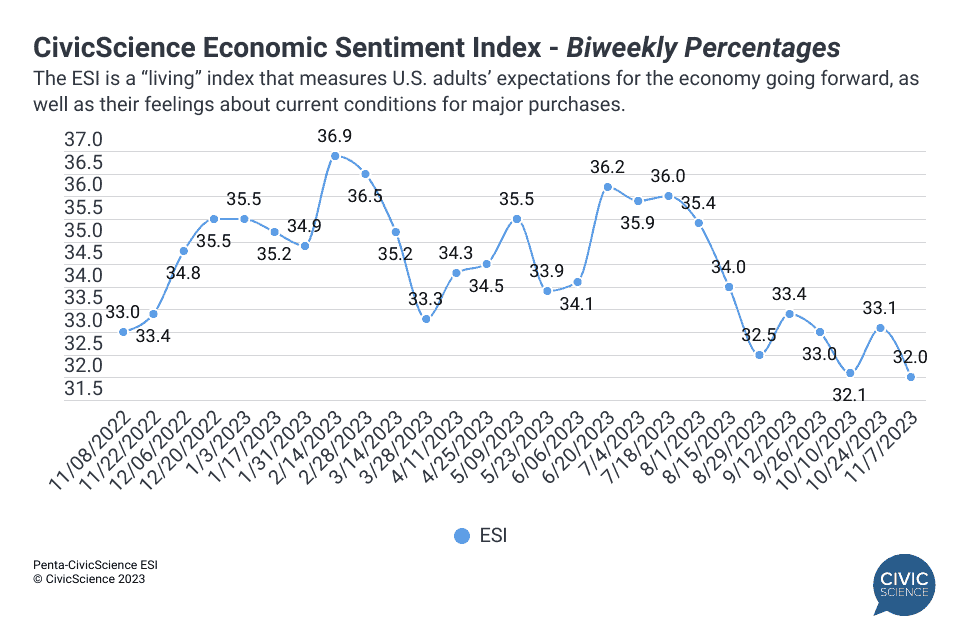
Even less great is our overall state of financial wellness. It’s not often our ESI and Consumer Financial Health Index come out the same week, so we might as well beat the dead horse while we can. Our CFHI, which takes a deeper look at how people feel about their personal savings, debt, credit, and such – and is ultimately our best predictor of consumer spending – took a header in October, too. Confidence in investments and retirement savings fell the most. The ESI and CFHI aren’t always correlated. But here we are.
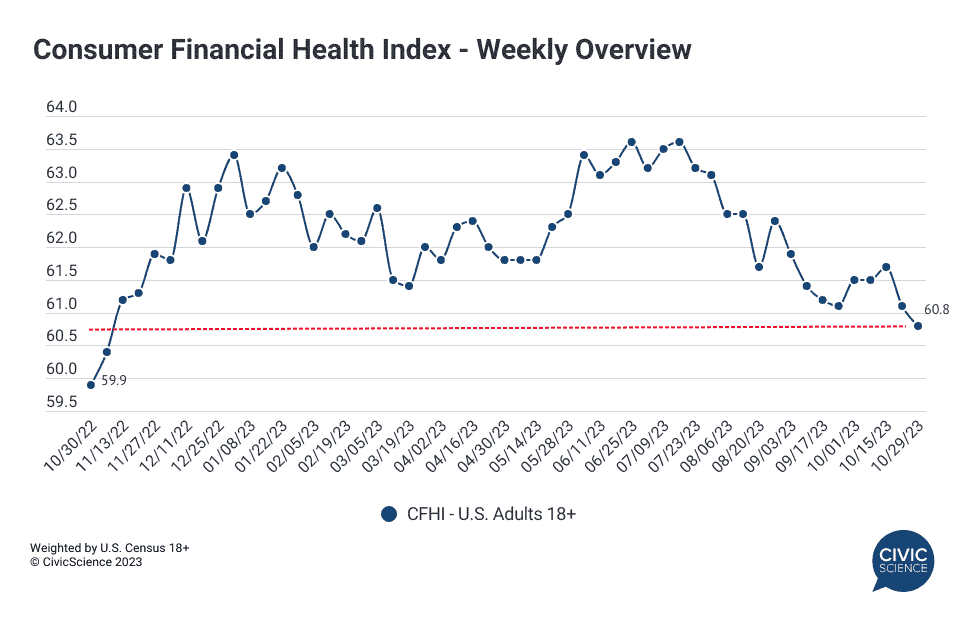
Social media is driving Ozempic use. I promised I would share some snippets from our new Ozempic/GLP-1 Tracker and I don’t break promises, only New Year’s resolutions. Anyway, what I found most interesting in the less interesting stuff we give away for free is that, of the 13% of U.S. adults who’ve tried one of these wonder drugs, nearly half of them have already stopped. Apparently, those negative stories aren’t getting as much traction on Facebook or Instagram.
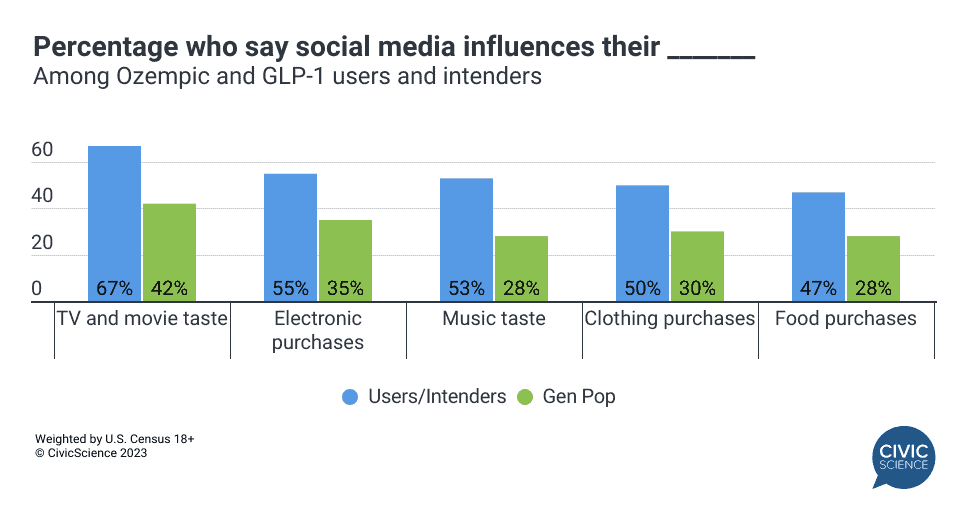
Cries for the regulation of AI are slowly turning into full-throated shouts. If you want to see my blood pressure jump, ask me about the completely reckless and short-sighted uses of AI being employed by the very companies with the most to gain from its long-term success – ruining it for all of us doing it the right way. But I digress. In our 3 Things to Know this week, we looked at the rising calls for regulation of AI, the persistent correlation between social media usage and mental health challenges, and how employment concerns are weighing on holiday retail.
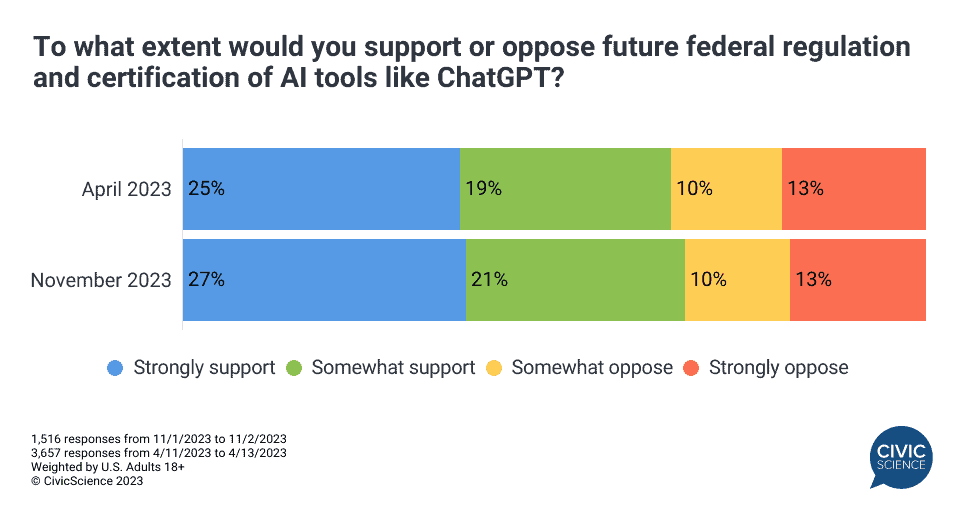
The popularity of coworking spaces has doubled (from a small base, admittedly) over the past year, but people would still rather work from home. It’s hard to time the market worse than WeWork did. As more and more commercial leases come up for renewal post-COVID, the percentage of Americans who say they’re using a coworking space is climbing – albeit from just 3% to 6%. Driving the increase is an appreciation for innovation and collaboration…which remains a major point of friction for remote work.
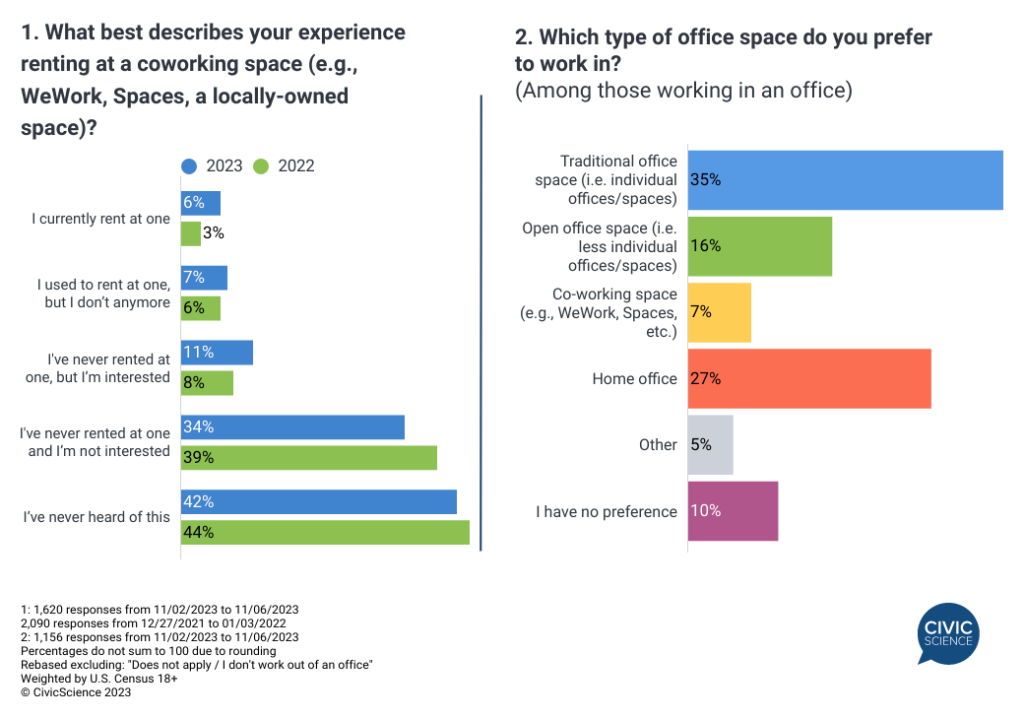
People are planning to cut their spending on wine this holiday season, partly by price-shopping online. Now we’ve really done it. The financial headwinds are expected to hit the wine industry this Christmas, as the percentage of Americans who say they plan to spend LESS on vino hit the highest number we’ve seen in 4 years. It doesn’t necessarily mean they plan to drink less – perhaps only that they’ll buy cheaper stuff – increasingly looking to the internet for better deals. Fear not, though, the rosé drinkers are resilient.
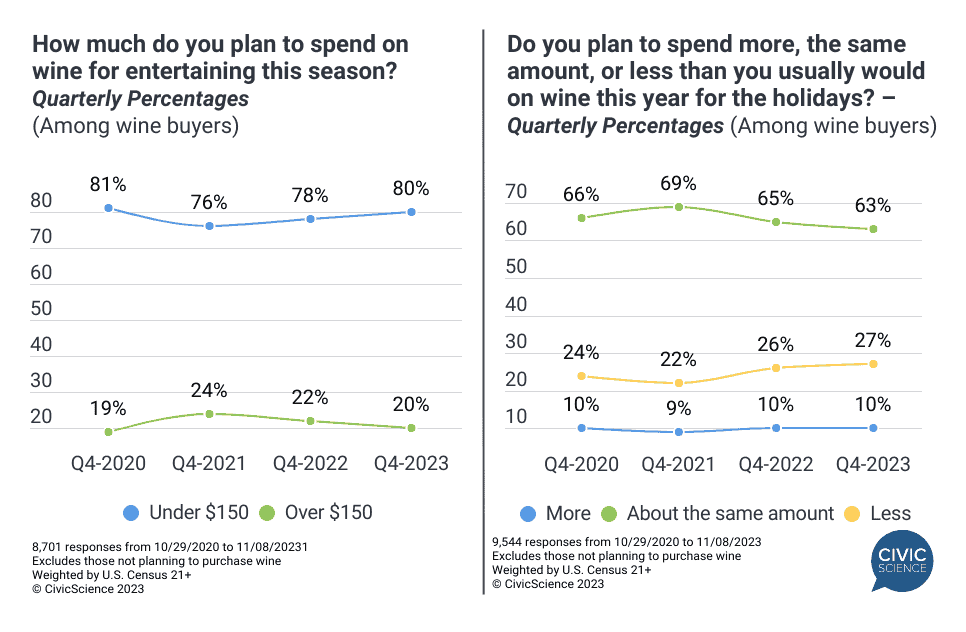
More awesomeness from the InsightStore™ this week:
- People are using more and more apps for food delivery;
- Podcast listeners are way more likely to buy advent calendars – and other advent calendar insights;
- Here are 3 things to know about JC Penney customers this week;
- Little Caesar’s customers over-index as sports bettors and two other things.
The most popular questions this week:
- Are you generally a fan of Netflix’s original content?
- How often do you eat eggs?
- Are you a pie person?
- Do you prefer “pop Taylor Swift” or “country Taylor Swift”?
- Do you typically book flights through a booking website or directly with the airline?
- Do you enjoy eating snacks or meals more?
Answer Key: Very much; Every weekend; Definitely not; Country; Airline, the points are better; Snacks by far.
Hoping you’re well.
JD
Want to see weekly insights from the What We’re Seeing through the lens of your customers? Learn how here.
Was this email forwarded to you? Sign up here. If you are new to this list, check out our Top Ten to get caught up.








